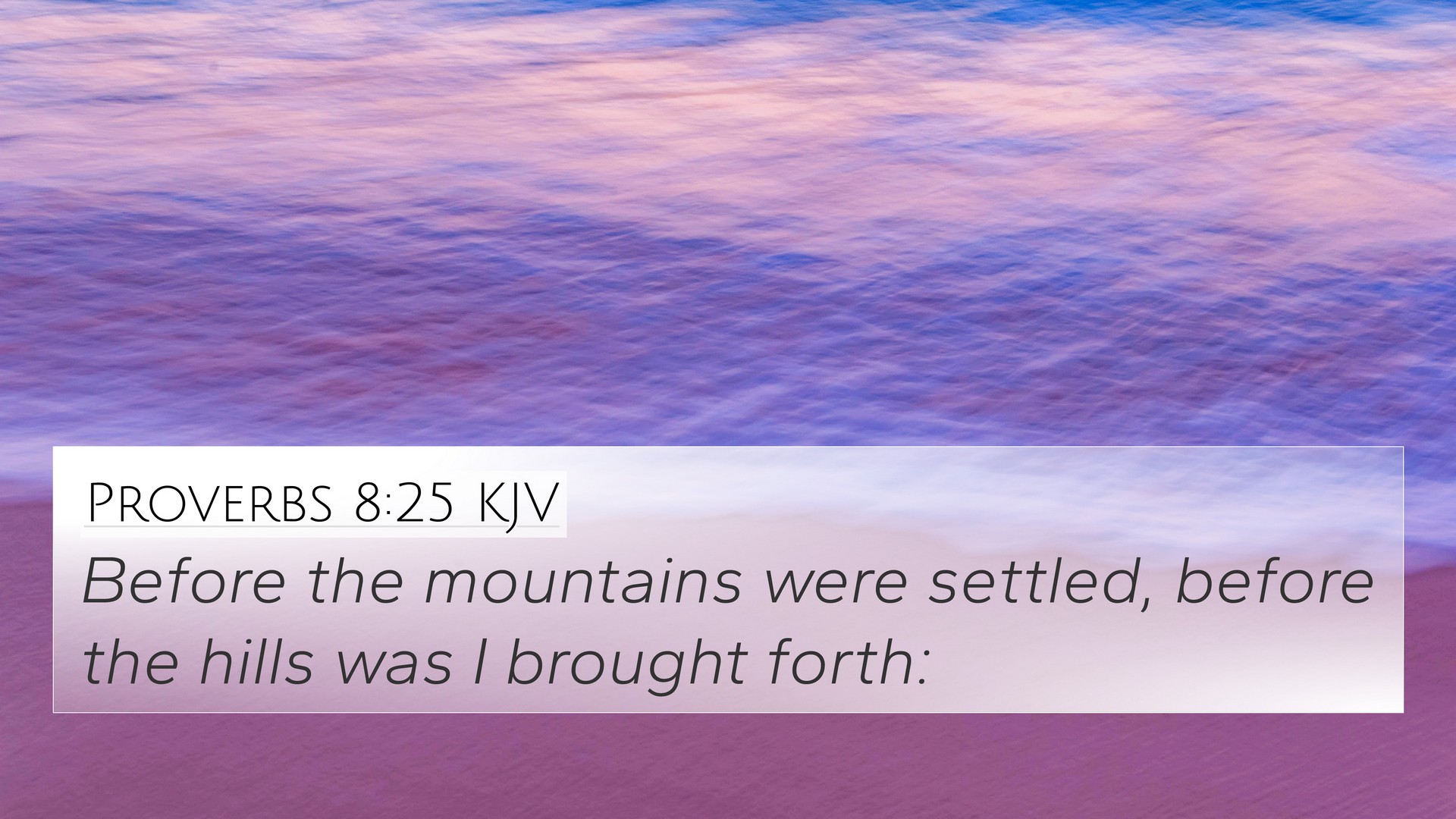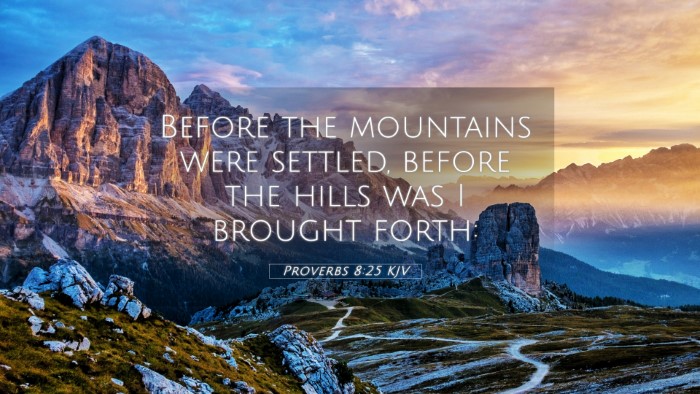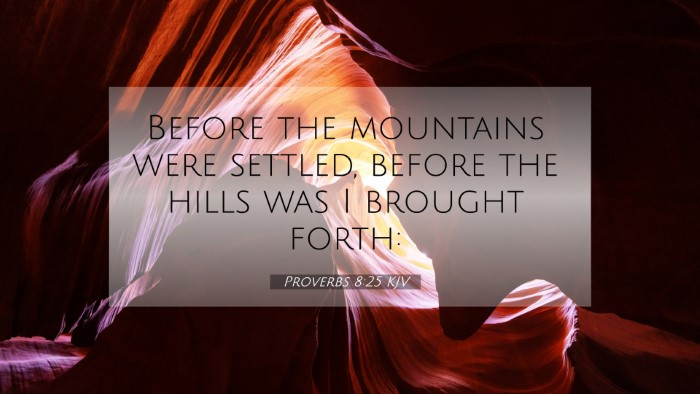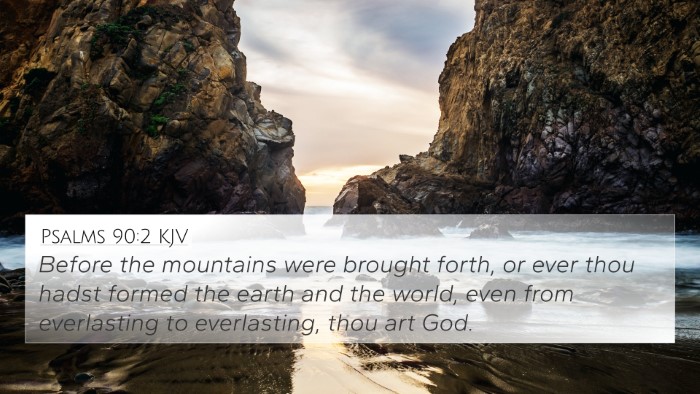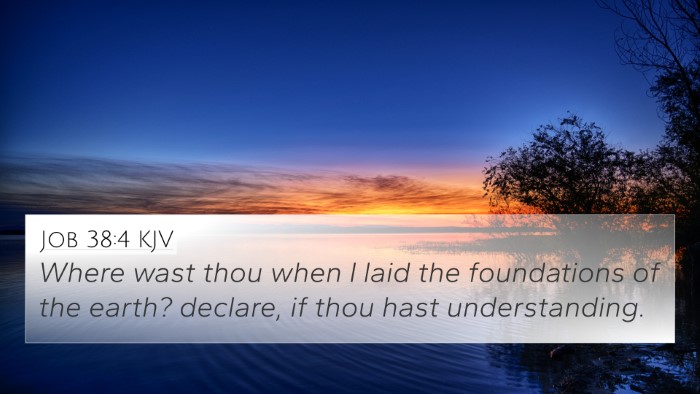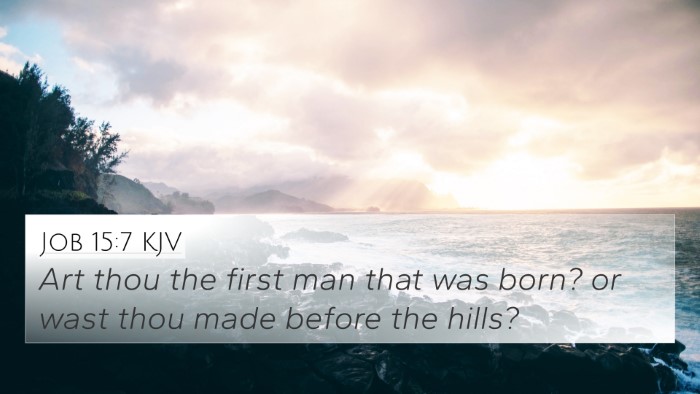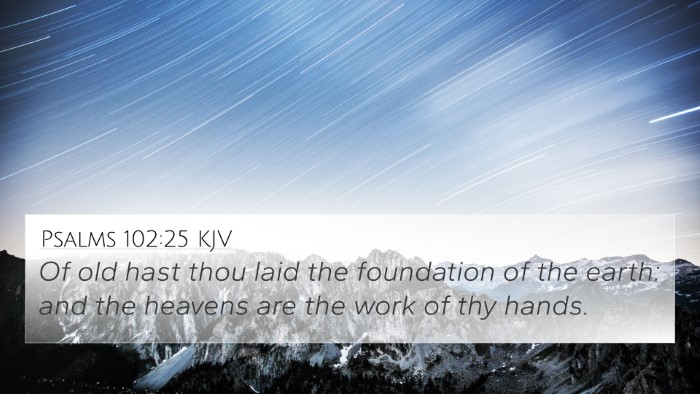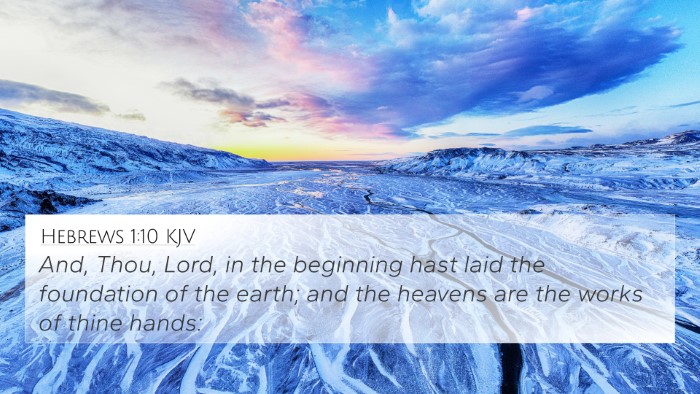Understanding Proverbs 8:25
Proverbs 8:25 states: "Before the mountains were settled, before the hills was I brought forth." This verse speaks to the pre-existence of wisdom, a key theme in the Book of Proverbs. The following insights from respected public domain commentators provide a comprehensive understanding of this verse.
Commentary Insights
Matthew Henry's Commentary
Matthew Henry emphasizes that this verse illustrates the eternal nature of wisdom. Before creation, before the physical world and its establishments, wisdom existed with God. This highlights the foundational importance of wisdom as integral to the creation process, suggesting that true understanding is necessary for the formation of the world.
Albert Barnes' Notes
Albert Barnes adds that the phrase "before the mountains were settled" indicates a time before any fixed creation. Wisdom, personified, is shown as not just an attribute of God, but as pre-existing and actively involved in creation. This personification of wisdom establishes a relationship between God and the wisdom that governs the universe.
Adam Clarke's Commentary
Adam Clarke provides further context by explaining that wisdom’s existence prior to physical creation necessitates that it is not a mere abstract concept but a tangible and vibrant presence with God. This verse can be seen as part of a larger dialog concerning the nature of God and the attributes that accompany His essence.
Theme: The Pre-existence of Wisdom
The overarching theme of this verse and its commentaries revolves around the pre-existence of wisdom, which serves as a powerful foundation for understanding God’s creative work. It challenges readers to consider wisdom not only as a pursuit but as a divine presence that was integral in the very act of creation.
Bible Verse Cross-References
Proverbs 8:25 relates to several other biblical texts, establishing thematic connections that enhance understanding. Here are notable cross-references:
- John 1:1-3: "In the beginning was the Word, and the Word was with God, and the Word was God." This reinforces the idea of wisdom's eternal presence with God during creation.
- Colossians 1:16-17: "For by him all things were created, that are in heaven and that are on earth." These verses illustrate Christ’s role in creation, paralleling the concept of wisdom in Proverbs.
- James 1:5: "If any of you lacks wisdom, let him ask of God." This speaks to the ongoing necessity of seeking wisdom, rooted in the truth that it has existed forever.
- Proverbs 3:19-20: Discusses how the Lord by wisdom founded the earth, establishing a direct connection between wisdom and creation.
- Proverbs 4:7: "Wisdom is the principal thing; therefore get wisdom." This reflects the value and priority of wisdom in living a life that honors God.
- Job 28:12: "But where shall wisdom be found? And where is the place of understanding?" This verse reinforces the search for wisdom while implying its foundational role.
- Isaiah 40:28: "Hast thou not known? Hast thou not heard, that the everlasting God, the Lord, the Creator of the ends of the earth, fainteth not, neither is weary?" Connects God's everlasting nature to wisdom’s pre-existence.
- Romans 11:33: "O the depth of the riches both of the wisdom and knowledge of God!" Suggests that God's wisdom is unfathomable and eternal.
- Proverbs 8:22-23: Discusses the origins of wisdom, shedding more light on its role in the creation narrative.
- Sophia literature in the Apocrypha, such as Wisdom of Solomon 7:22: This literature often reflects similar themes surrounding wisdom’s presence with God.
Conclusion: The Importance of Wisdom
In summary, Proverbs 8:25 offers profound insights about the eternal nature of wisdom, reinforcing its significance in the narrative of creation and the ongoing relationship every believer has with it. The connections found across various scriptures enhance our understanding of how wisdom operates within God's plan, encouraging believers to seek and cultivate wisdom in their lives.
Exploring Further: Tools for Bible Cross-Referencing
To better understand the connections between Bible verses, consider utilizing various tools and resources:
- Bible Concordance: A valuable tool for finding specific verses related to a theme or word.
- Bible Cross-Reference Guide: A systematic resource that facilitates cross-referencing across scripture.
- Cross-Reference Bible Study: Methods that help in identifying relationships between verses during study sessions.
- Bible Reference Resources: Various books and digital resources that aid in deepening your understanding of scriptural context.
- Bible Chain References: A method that helps trace themes through successive verses.
